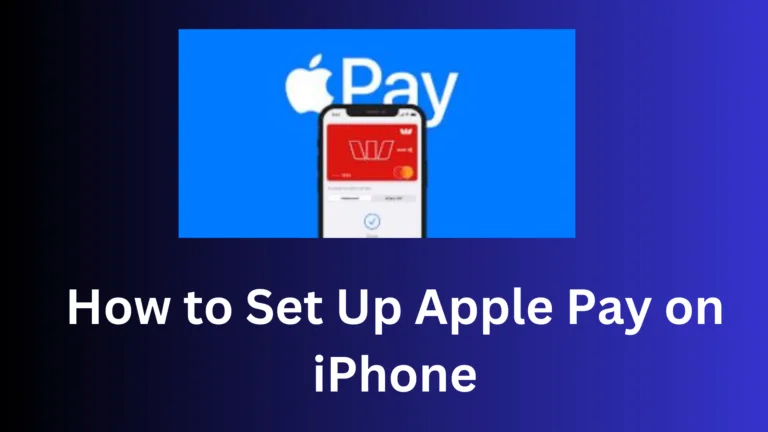How Does Chime Make Money?
Have you ever wondered How does Chime make money? How does the popular online banking platform manages to provide its services while also staying financially viable? In this article, we’ll dive into the fascinating world of Chime’s revenue model and explore how this innovative fintech company generates income.
Understanding how Chime makes money can provide insights into the sustainability of modern banking services and the ways in which fintech companies like Chime thrive in the digital age.
So, if you’re curious about the financial side of Chime, read on to learn more about their revenue strategies and what makes them successful.
How Does Chime Make Money With no Fees?
Chime is a neobank, which is a type of digital bank that does not have any physical branches. This allows Chime to keep its costs down, which is why it is able to offer no-fee checking and savings accounts.
Chime makes money in a few ways:
- Interchange fees: Interchange fees are the fees that merchants pay to banks and other financial institutions every time a customer uses a debit or credit card to make a purchase. Chime receives a portion of these interchange fees on every transaction made with a Chime card.
- ATM fees: Chime users pay a fee for using out-of-network ATMs. These fees are typically $2.50 per withdrawal.
- Interest income: Chime earns interest on the cash balances in its customers’ accounts.
Chime also offers a number of premium features, such as early direct deposit and overdraft protection, for a monthly fee.
According to Chime, interchange fees make up the majority of its revenue. In 2021, Chime generated $1.3 billion in revenue, of which $1.1 billion came from interchange fees.
It is important to note that Chime is not a bank. It is a financial technology company that partners with two banks to provide its services: The Bancorp Bank and Stride Bank.
What are the Hidden Fees For Chime?
Chime is known for its transparent fee structure, and it does not have any hidden fees. However, there are a few fees that you should be aware of before signing up for a Chime account:
- Out-of-network ATM fees: Chime charges a $2.50 fee for using an out-of-network ATM. The ATM operator may also charge an additional fee.
- International transaction fees: Chime does not charge a foreign transaction fee, but the merchant may charge a fee for converting your currency to the local currency.
- Cash deposit fees: Chime charges a fee of $1 to $5 to deposit cash at a Walmart or 7-Eleven location.
- Expedited delivery fees: Chime charges a fee to expedite the delivery of your debit card.
It is important to note that these fees are not hidden. Chime clearly discloses them on its website and in its account agreement.
How Does Chime Make Money with no Fees?
Chime manages to provide its no-fee banking services while still making money through a clever strategy. Instead of charging its users fees, Chime earns income through a few different channels.
One key way is by collecting what are known as “interchange fees.” These fees are paid by merchants to banks and financial institutions when you use your Chime debit or credit card to make a purchase. Chime gets a slice of these fees for every transaction made with a Chime card.
Additionally, Chime makes money from ATM fees. When Chime users use out-of-network ATMs, they may pay a fee, and Chime collects a portion of that fee. Chime also earns money through interest on the cash that customers keep in their accounts.
Now, the reason Chime can offer fee-free accounts is because it operates differently from traditional banks. Chime doesn’t have physical branches, which means it saves on costs like rent and utilities. Plus, it runs on a digital platform, which keeps its expenses down.
Instead of being a bank itself, Chime partners with The Bancorp Bank and Stride Bank to provide its services, which helps Chime avoid the expenses of maintaining its own banking infrastructure.
By cutting costs and earning income through these various channels, Chime can provide no-fee checking and savings accounts to its customers, making banking more accessible and affordable for everyone.
Is Chime Completely Free?
Chime is not completely free, but it is very affordable. There are no monthly maintenance fees, no minimum balance requirements, and no overdraft fees. Chime users also have access to over 60,000 fee-free ATMs nationwide.
However, there are a few fees that Chime users may incur:
- Out-of-network ATM fees: Chime users pay a $2.50 fee for using an out-of-network ATM. The ATM operator may also charge an additional fee.
- International transaction fees: Chime does not charge a foreign transaction fee, but the merchant may charge a fee for converting your currency to the local currency.
- Cash deposit fees: Chime charges a fee of $1 to $5 to deposit cash at a Walmart or 7-Eleven location.
- Expedited delivery fees: Chime charges a fee to expedite the delivery of your debit card.
How Often Does Chime Pay Interest?
Chime pays interest on your savings account balance monthly. The interest rate is variable, meaning that it can change at any time. However, Chime is currently offering a 2.00% APY on savings accounts.
To earn interest on your Chime savings account, you must maintain a minimum balance of $0.01. Interest is compounded daily, which means that you earn interest on your interest.
You can view your interest earnings in the Chime app. To do this, tap on the “Savings” tab and then tap on the “Interest” tab.
Conclusion
Chime makes money primarily through interchange fees, ATM fees, and earning interest on customer account balances. This revenue allows Chime to offer fee-free banking services while maintaining its digital-first and cost-effective approach.
So, while some fees may apply in specific situations, Chime’s core services remain accessible and affordable for its users, making it a convenient choice for modern banking needs.



